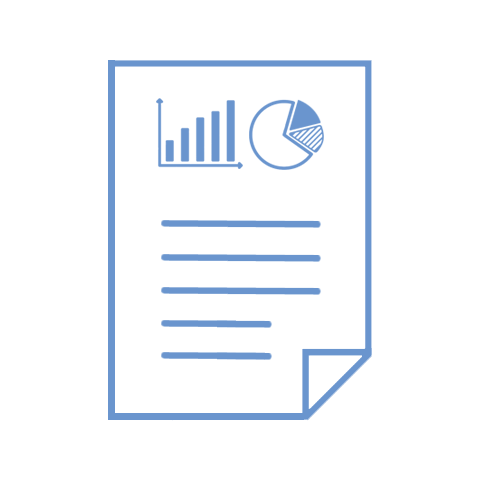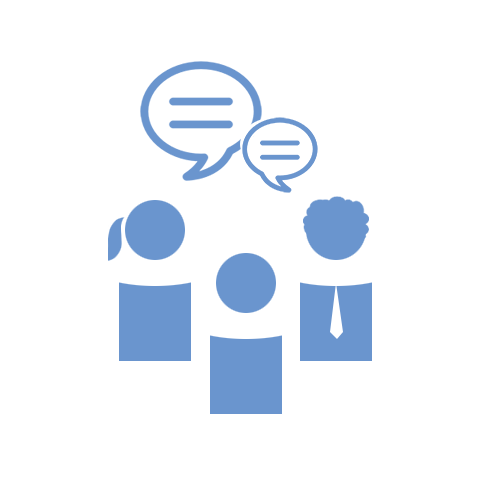 Hi there,
Hi there,We hope you enjoy this edition.
Have a good read!
The Team
Articles
A 100-page report titled “The Malicious Use of Artificial Intelligence” was just published, receiving worldwide media coverage. It was written by 26 authors from 14 institutions, spanning academia, civil society and industry, including the Future of Humanity Institute and the Centre for the Study of Existential Risk. The report forecasts how AI could be misused by malicious actors over the next five years and how these risks can be prevented and mitigated.
MIRI senior researcher Eliezer Yudkowsky was recently invited to be a guest on Sam Harris’ “Waking Up” podcast. They talk about the nature of intelligence, different types of AI, the “alignment problem,” the AI arms race, conscious AI, coordination problems and a host of other topics.
Lukas Gloor outlines his thinking on cause prioritization from the perspective of so-called downside-focused value systems, e.g. suffering-focused ethics.
80,000 Hours now recommends a new career path: China specialists. People interested in this path would develop expertise at the intersection of China, effective altruism and pressing global issues and then use their experience to work on problems where China is likely to play a key role, such as AI strategy, biorisk or factory farming. (FYI, the Good Food Institute is currently hiring a Managing Director for China.)
Where did some members of the effective altruism community donate to in 2017? Michael Dickens has collected articles where people share which organizations they supported last year and why they did so.
How should a foundation that, for instance, works to prevent dangerous climate change invest their endowment? Most would probably say that they shouldn’t be investing in fossil fuel companies. Hauke Hillebrandt however advances a counterintuitive argument rooted in the “mission hedging” approach that in some cases it might indeed by optimal for altruists to invest in companies that exacerbate the problem they are trying to solve.
Announcements
Applications are now open for EA Global: San Francisco 2018, taking place on 8-10 June. Apply here.
Timeless Classics
For those who are interested in reading lists on effective altruism (such as syllabi of academic courses on EA), Pablo Stafforini offers this comprehensive and up-to-date list.
Do make sure to have look at the “resources” page on effectivealtruism.org as well for a collection of articles and talks on the key ideas of EA as well as in-depth research posts.
Spotlight: Podcast Series by 80,000 Hours
The 80,000 Hours podcast series has proven to be very popular among members of the effective altruism community, and with the recent release of several new episodes now is a good time to shine a spotlight on them. Hosted by Director of Research Rob Wiblin, the podcast dives into the world’s most pressing problems and features people who are working on solving or alleviating some of these problems. The podcast frequently includes practical career advice as well.
Recent guests on the show have included:
-
Holden Karnofsky of the Open Philanthropy Project, which gives away over $100 million per year
-
Bruce Friedrich of the Good Food Institute, a current ACE top charity that aims to transform the food system by helping create competitive alternatives to animal-based meat, dairy and eggs
-
Samantha Pitts-Kiefer of the Nuclear Threat Initiative, a nonprofit working on reducing various threats, including those posed by nuclear weapons
-
and Ofir Reich, a data scientist from the Center for Effective Global Action who is working on several projects helping people in extreme poverty.
Updates
80,000 Hours
Made plans for the coming months, released four podcasts (see above) as well as a write up of a new effective altruist career path: China specialists.
Animal Charity Evaluators
Animal Charity Evaluators is discontinuing their social movements project but will continue to learn from other movements and build solidarity with them. They have also published their 2018 prospective goals and discussed their current room for more funding.
Center for Applied Rationality
CFAR announced that Timothy Telleen-Lawton has become Executive Director; he replaces Pete Michaud, who will remain an advisor. Also, CFAR acquired a mortgage to purchase a house in Bodega Bay for future workshops, and received grants from the Open Philanthropy Project and the Berkeley Existential Risk Initiative (BERI).
Centre for Effective Altruism
CEA launched Effective Altruism Community Building Grants, to help strengthen a small number of high-potential effective altruism groups.
Centre for the Future of Intelligence
Many CFI staff and collaborators were featured in the University of Cambridge's research magazine Research Horizons.
Centre for the Study of Existential Risk
CSER had several papers published, including on a new classification system for Global Catastrophic Risks, representing future generations in policy-making, the best way to protect biodiversity, geoengineering tensions, and decision theory. Lord Martin Rees gave a podcast interview with the Financial Times. They also released a lecture video on Big Data, and established a partnership with Kyoto’s GSAIS.
GiveWell
GiveWell published a blog post explaining how its approach to including charities' influence on other funders in its cost-effectiveness analysis has changed over time. GiveWell is also hiring for a number of roles.
Open Philanthropy Project
The Open Philanthropy Project announced grants of $2.6 million to the Blue Ribbon Study Panel on Biodefense, $1 million to the Center for Applied Rationality, $560,000 to CFAR's Summer Program on Applied Rationality and Cognition, and $510,000 to 80,000 Hours. Open Phil also published a blog post about new job opportunities.
Rethink Charity
LEAN released the most comprehensive empirical assessment of EA groups to date. Learn more about the impact of groups, significant patterns, their place in effective altruism movement building and LEAN’s strategy for 2018. Rethink Charity has also just released its newest project: Rethink Priorities. Marcus Davis and Peter Hurford introduce their cause prioritization research in this EA Forum article.
Sentience Institute
Research Director Jacy Reese published an op-ed on Steven Pinker’s Enlightenment Now in Quartz, asking whether human progress will extend to animals and artificial minds. He also argued in an EA forum post for far future prioritization of moral circle expansion and quality risks over AI alignment and extinction risks.
Wild-Animal Suffering Research
WASR released a series of plans (strategic, outreach, research and evaluation) outlining the focus of the project. Persis Eskander wrote a guest blog post for ACE on the need to determine the tractability of wild-animal suffering. Georgia Ray published a preliminary review of the effects of seafood substitute products on reducing the suffering of wild sea animals.
Jobs
Go forth and do the most good!
Let us know how you liked this edition and how we can improve further.
If you’re interested in past editions of this newsletter, here is the full archive
Get Involved in Effective Altruism
The Effective Altruism Newsletter is a joint project between the Centre for Effective Altruism, and .impact.
This is an archived version of the EA Newsletter sent to 50,896 subscribers on March 6, 2018.
To see the full archives, click here.


